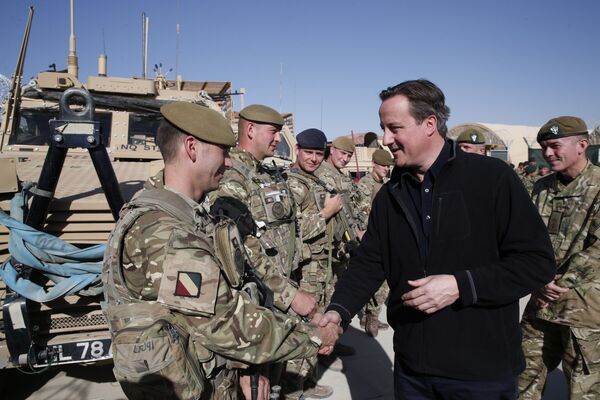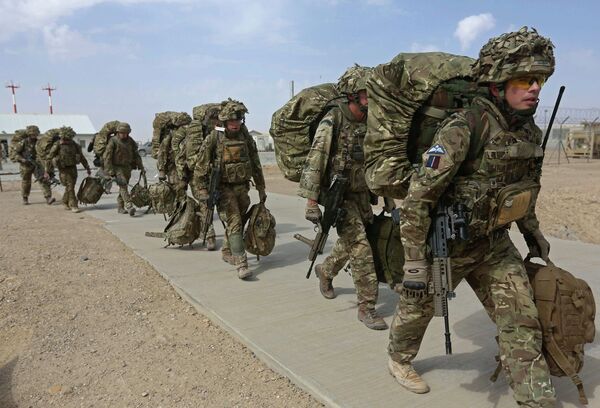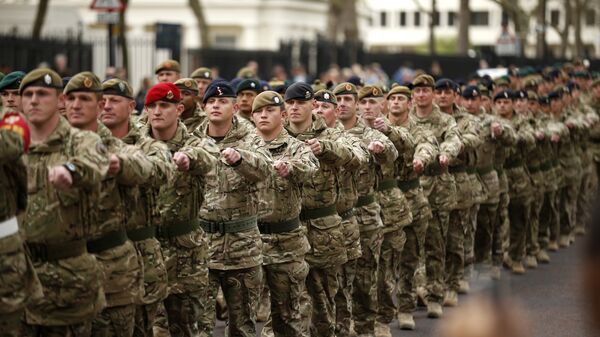Britain's comeback to President Donald Trump's announcement on Monday, August 21, that the US will expand its military authority in Afghanistan was "welcomed" by Michael Fallon. However, no further vows beyond the existing UK military pledges were made.
"Michael Fallon is putting a political break on things," Anthony King, professor in war studies at Warwick University told Sputnik.
Former UK Prime Minister David Cameron was very keen to follow then-US president Barack Obama and withdraw troops from the Helmand province in Afghanistan, and the current Conservative government is anxious about the deployment of troops to any high intensity missions, except for special forces, Professor King explained.

Following the 10-year-plus deployment in which the UK has lost over 400 soldiers, Michael Fallon is noting there is limited political appetite for submitting to that kind of commitment again. Their reluctance is a reflection of a deep-seated popular skepticism about the deployment of troops and losses incurred both in Iraq and Afghanistan," Professor King told Sputnik.
Despite the British Army facing considerable financial pressure, both in terms of equipment and personnel, it is not what concerns Michael Fallon the most when it comes to another Afghan deployment.
"The primary point of call for Michael Fallon is the political costs of it. He recognizes there is very little appetite in the UK for the deployment of troops to a distant country about which we know apparently not very much. The concern is that you would potentially deploy troops on an endless mission in which very significant numbers of them would be hurt or killed for not very much in the end. It's a skepticism about the utility of force," Professor King said.

There are currently up to 585 British troops stationed in Afghanistan alongside 8,400 US soldiers.
Afghanistan, which has a mountainous terrain ideal for ambush, has been a graveyard for foreign armies for hundreds of years. A NATO led coalition entered Afghanistan in 2001, after 9/11 and 3,539 NATO troops have been killed in the past 16 years with the Taliban still undefeated.
UK troops continue to tirelessly support the people of #Afghanistan on their Independence Day @UKinAfghanistan @ResoluteSupport pic.twitter.com/us6PHbN6XA
— Defence Operations (@DefenceOps) August 19, 2017
The Pentagon Policy
The policy of redeploying potential combat troops into Afghanistan is not Trump's policy, but a policy of the Pentagon, according to Professor King, and therefore retired General James Mattis' and National Security Adviser General H. R. McMaster's policy — and this is evident as before he was elected, Trump had been looking at pulling troops out of Afghanistan.
"Unlike Trump's intemperate comments about North Korea and China, this will not be interpreted as saber-rattling rhetoric, but as a policy. It may be the wrong policy, but it is a policy which has been thought through carefully by the Pentagon," he told Sputnik.




